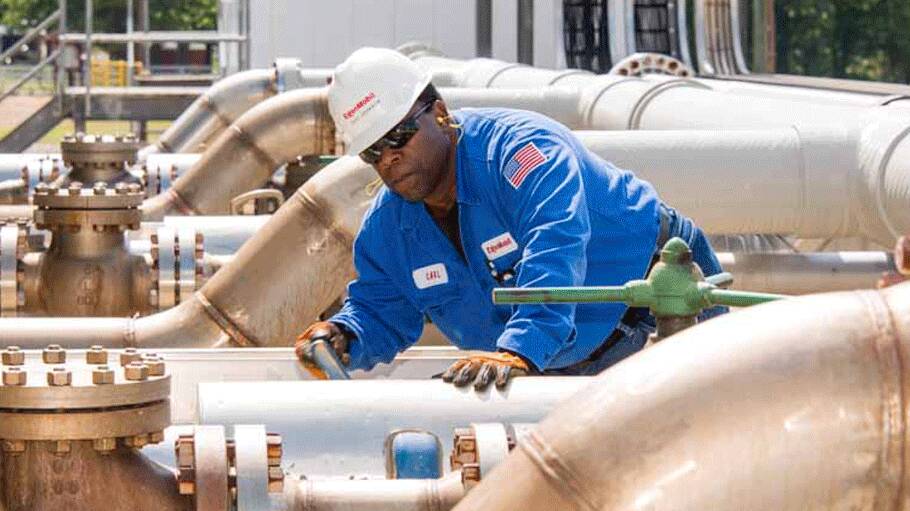selected item
All in on industry initiative aiming for zero methane emissions
ExxonMobil and 11 other signatories will strive to reach near zero methane emissions from operated oil and gas assets by 2030.
This initiative builds upon ExxonMobil’s previously announced 2030 greenhouse gas (GHG) emission reduction plans, which include our expectation to cut company-wide methane emissions by 70% compared to 2016 levels, and achieve net-zero GHG (Scope 1 and 2) from our operations in the Permian Basin. Our plans are consistent with pathways aligned with the Paris Agreement.
ExxonMobil’s participation in OGCI’s initiative is just one way we’re aiming to reduce and ultimately eliminate venting, leaks and other sources of methane associated with oil and gas production. Experts agree that working to stop methane emissions is one of the most powerful ways to help address climate change.
Supporting methane regulations
That’s why we are working to help U.S. state and federal regulators design policies that will further enable reductions throughout our industry.
In February, ExxonMobil filed a comment letter with the U.S. Environmental Protection Agency in support of its proposed regulation of both new and existing sources of oil and gas industry methane emissions. We similarly support the framework for regulating methane being developed in the European Union.
ExxonMobil also supports the Global Methane Pledge, launched at COP26 by the United States and the European Union. More than 100 countries have signed up to help reduce global methane emissions by 30% by 2030, compared to 2020 levels.
Key methane collaborations
In addition to our work with OGCI, ExxonMobil collaborates with other groups aiming to reduce methane emissions.
We recently participated in the annual global roundtable of the Methane Guiding Principles, a multi-stakeholder partnership that ExxonMobil helped found in 2017. As part of that effort, ExxonMobil is a primary sponsor of the International Energy Agency’s Methane Tracker, a web-based portal that provides data on global methane emissions, and published our own annual Methane Guiding Principles report, detailing the actions we undertook to address methane emissions.
We plan to achieve additional emission reductions through actions that include further reducing flaring in our upstream operations to meet the World Bank Zero Routine Flaring Initiative. ExxonMobil has already made significant reductions in this area; from 2016 through 2020, we reduced global hydrocarbon flared volumes, on an operated basis, by approximately 40%.
More research, new technology
ExxonMobil also continues to develop and deploy technologies that can help industry reduce its methane emissions, collaborating with others on cutting-edge research and piloting new technologies in our own operations.
We are particularly excited about a newly announced collaboration with Scepter Inc. to detect methane and other GHG emissions around the world using advanced satellite technology combined with proprietary data-processing platforms. The collaboration could redefine methane detection and contribute to emission-reduction efforts across a dozen industries, including energy, agriculture, manufacturing and transportation. This is important because about three-quarters of man-made methane emissions come from sectors other than oil and gas, according to the Global Methane Budget.
ExxonMobil is committed to playing a leading role in the energy transition. Our aim to reduce our methane emissions to near zero by 2030 supports our larger ambition to achieve net-zero Scope 1 and 2 GHG emissions across our major operated assets by 2050.
Explore more
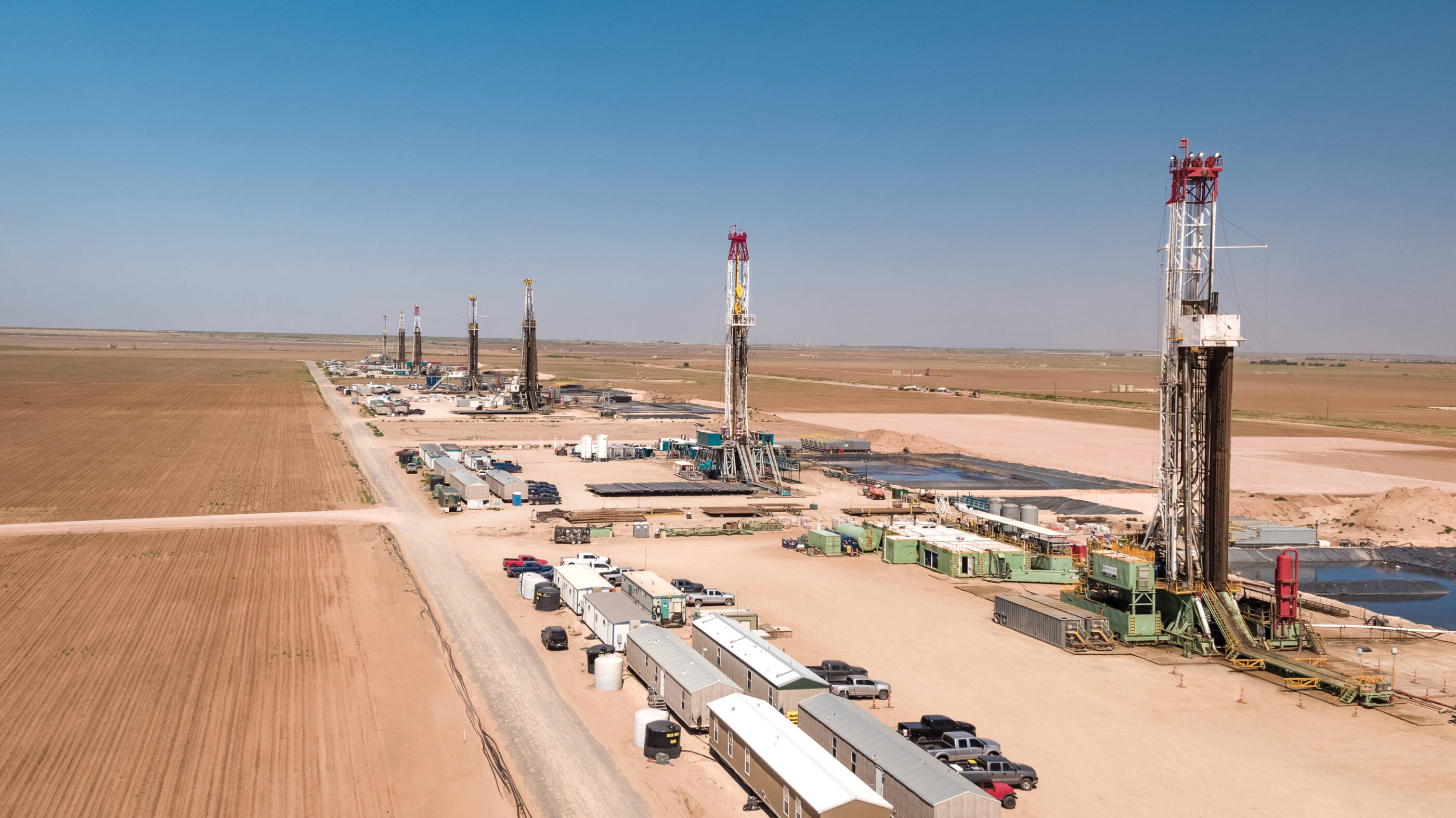
Our purpose in the Permian
Oil and natural gas are fundamental to modern life, from heating homes and filling gas tanks to generating electricity and providing the chemical building blocks for plastics. As one of the most active operators across the Permian Basin – a vast area roughly the size of Kansas that's spread across southwest Texas and southeast New Mexico – ExxonMobil is working to increase global energy supplies at a time when demand for reliable energy is growing.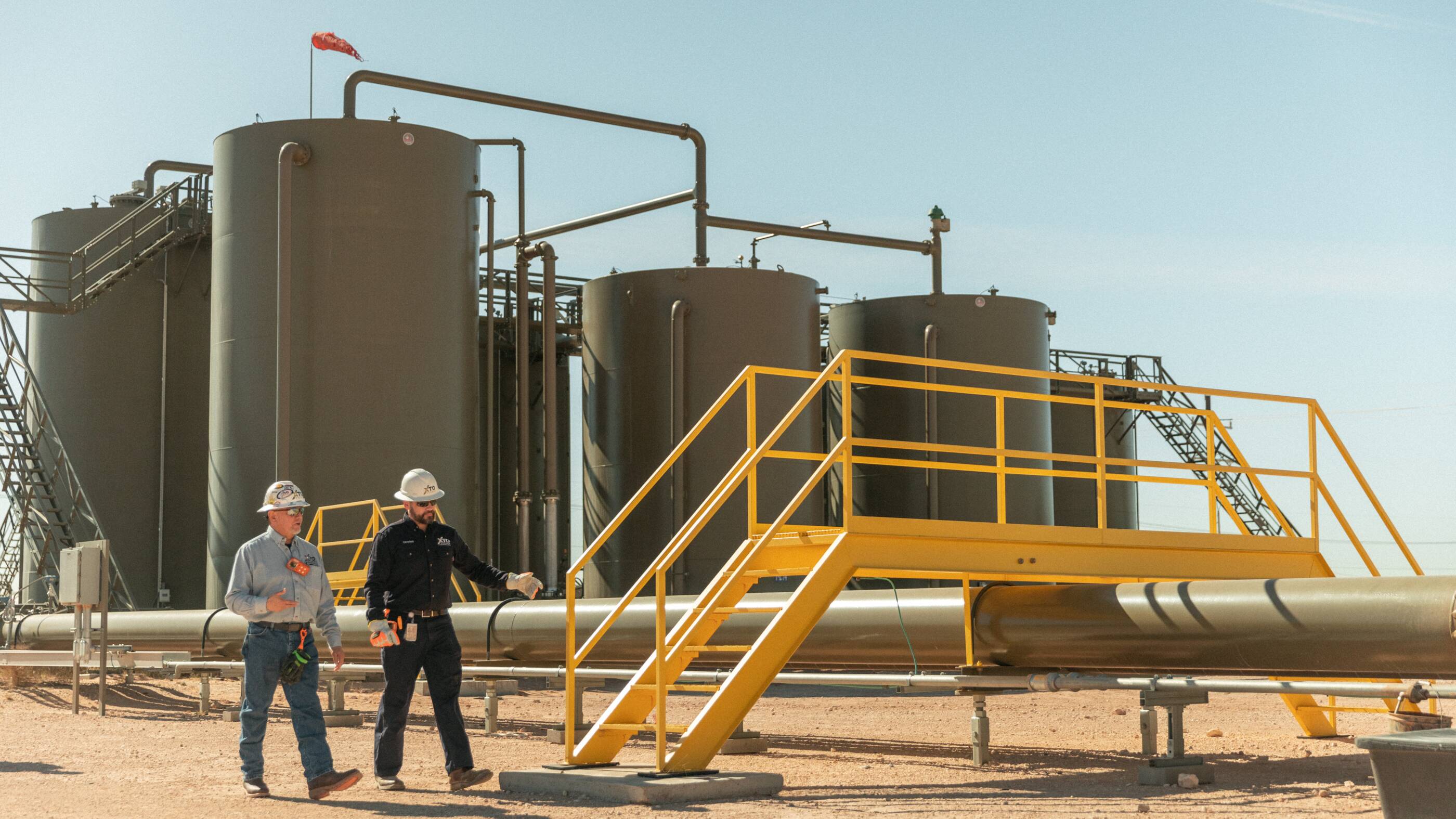
Certifying natural gas on a pathway to a lower-emission energy future
In 2021, ExxonMobil became the first integrated energy company to announce participation in a program to certify natural gas production through a pilot at Poker Lake, New Mexico, a key area of its Permian Basin operations, using standards developed by MiQ, a nonprofit organization.
The global methane pledge
In September, the U.S. and European Union announced a Global Methane Pledge to reduce methane emissions by 30% below 2020 levels by 2030. More than 30 nations have now joined the Pledge, and more could be announced at the upcoming COP26 climate summit in Glasgow, Scotland.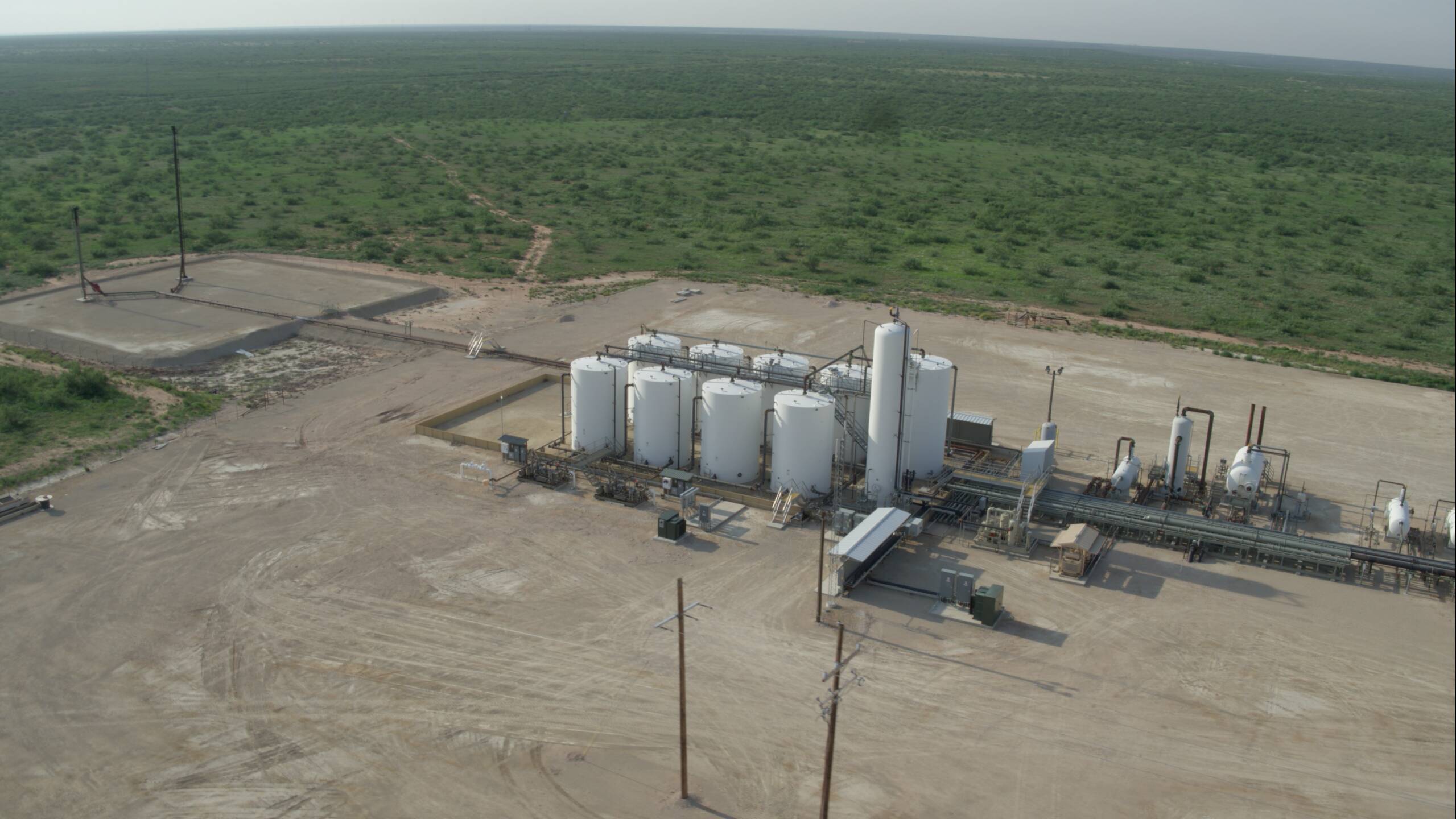
Certified gas pilot to help our customers meet environmental goals
The methane landscape has evolved rapidly and considerably since ExxonMobil announced our enhanced voluntary methane emissions mitigation program nearly four years ago.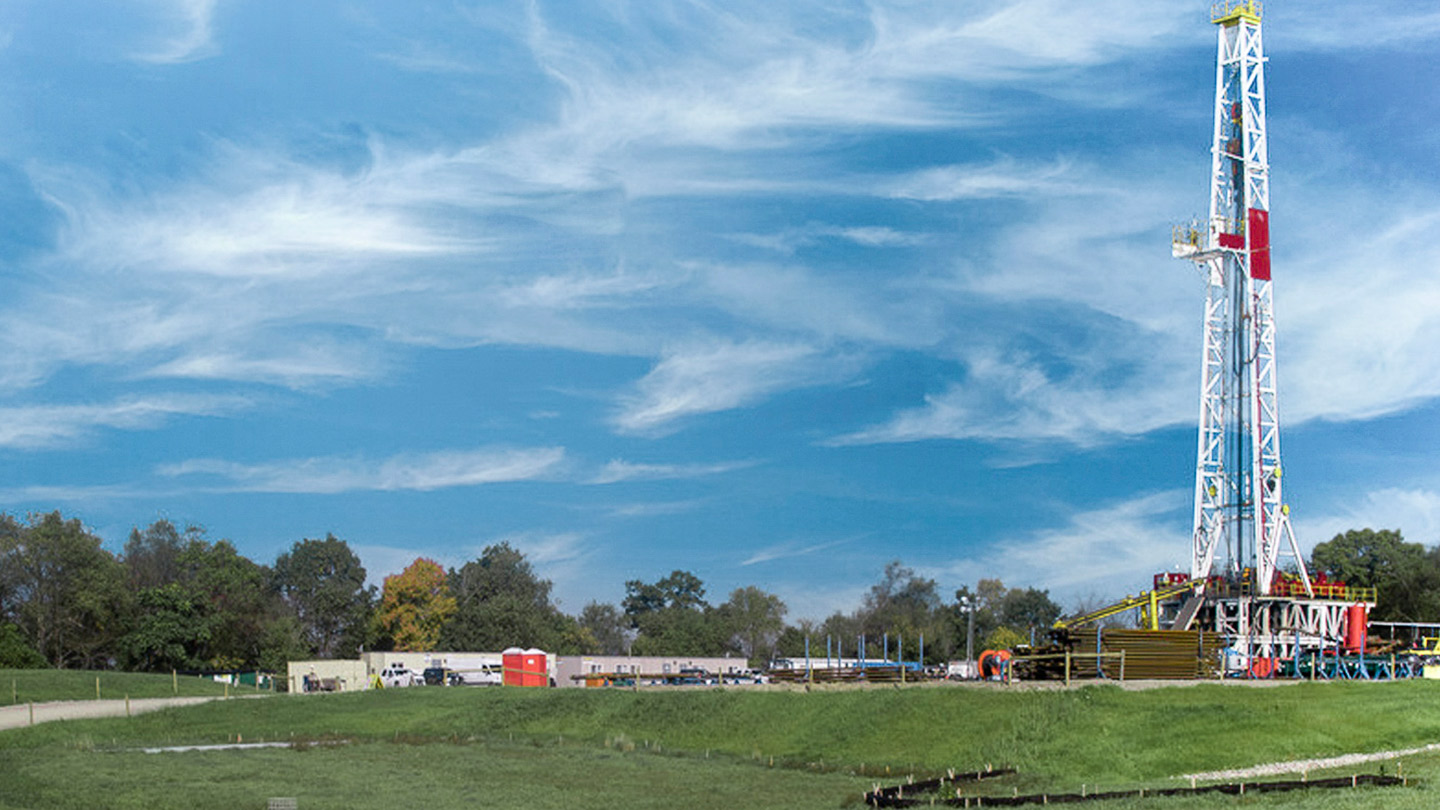
When it comes to methane, better regulatory approach needed
There has been a strong regulatory reform effort over the last few years in the U.S. that has spurred investment and economic growth. As our Chairman and CEO Darren Woods has noted, sound tax and regulatory policies help foster pro-growth business climates.